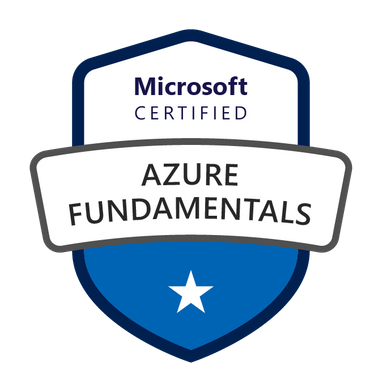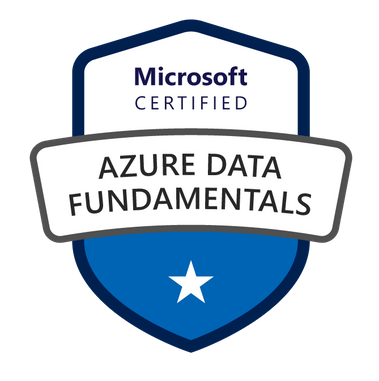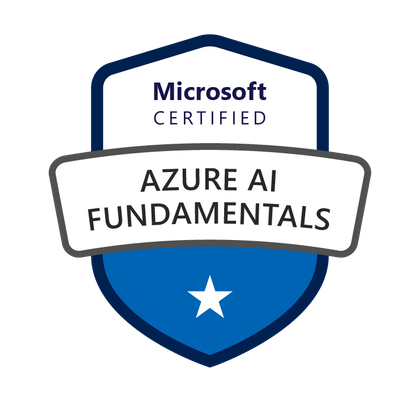When I moved from using mostly AWS to using mostly Azure at work, I did not find the transition too painful. However while I mostly use PySpark on Databricks for my work, I recently decided to fill in my overall knowledge of the Azure platform. Microsoft provide an excellent training platform for their services and this support includes specific Azure training. I decided to start by looking at their fundamentals exams, which are the most basic certifications.
The Certifications
There are three fundamentals exams on offer for the Azure platform. These are AZ-900 Azure Fundamentals, DP-900 Azure Data Fundamentals and AI-900 Azure AI Fundamentals. Other fundamentals exams also exist for things like Microsoft 365 and Security if you are interested.
The Training
One of the best aspects of these courses are the free training materials direct from Microsoft available online. These fall into two main categories, online self paced learning via the learn portal, and online livestreamed training courses. I found the self-paced option a little more comprehensive, but the great advantage of attending the online seminars is that they entitle you to one free shot at the exam. Otherwise the exams cost £69 each which is not too unaffordable.
The course content tends to be at a fairly general level, but it does give you a good overview of services available. It also shows you how to link things up, options for things like security and redundancy, and how billing works. Sometimes it is a little heavy handed at boosting the benefits of cloud, but overall the training is pretty good. One slight failing is a shortage of sample questions for knowledge check but there are a lot of online resources with additional relevant questions.
The Exams
The exams are multiple choice and from what I can tell they are a little peculiar. Thus far I have passed the AZ-900 exam (update and passed the DP-900 exam and the AI-900 exam). I did notice that the sample questions presented in the training materials were a lot more straightforward than those in the exam. Some of the questions seemed more like English comprehension or almost trick questions. For example they might include a word in the question which was only present in one of the wrong answers. I can give no specific examples for obvious reasons. All I can say is read each question very carefully. Also sometimes its better to work by a process of elimination than trying to positively identify the right answer.
Another thing to be aware of is that the online proctoring software objects to certain background processes. I did not know these were running on my laptop, which was a shock. It also objects to you pressing ctrl-alt-delete to kill processes. This is awkward when the exam software obscures the start menu! Fortunately such warnings do not appear to result in an automatic fail. All I can say is that you should kill as many extraneous processes as possible before beginning the exam.


